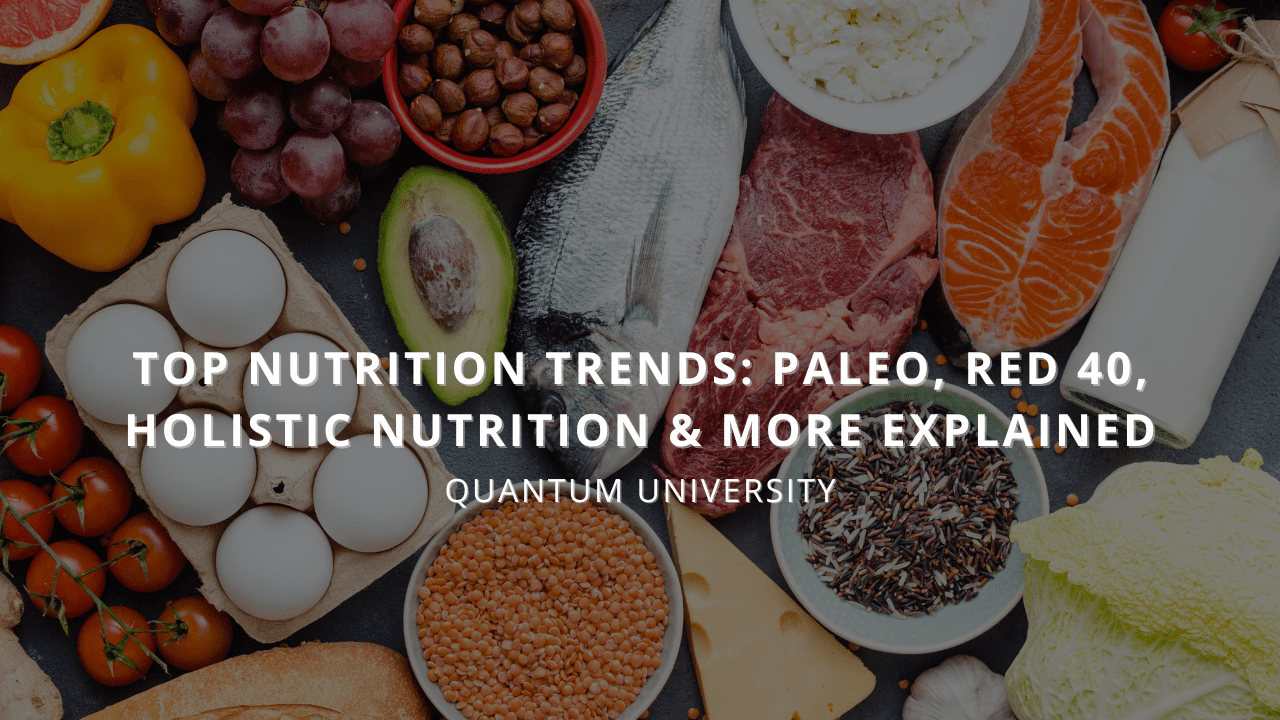

Nutrition has become one of the most talked-about topics in health and wellness today. From the surge of interest in diets like Paleo to growing concerns about additives such as Red 40, people are becoming more curious about what they put on their plates. Amid this increased awareness, a shift toward holistic nutrition is emerging, an approach that considers food as just one part of a larger picture, connecting diet to lifestyle, mental clarity, emotional balance, and long-term well-being.
As interest in holistic nutrition grows, so does the demand for professionals who want to support others. Careers in nutrition, including roles as a nutrition health coach or certified nutritionist, offer the opportunity to turn a passion for wellness into a rewarding profession.
The Paleo diet, often called the “caveman diet”, is rooted in the idea that our modern health problems stem from eating foods our bodies weren’t designed to process. Advocates believe humans are genetically better suited to the diet of our Paleolithic ancestors, long before agriculture, refined sugar, and processed foods became staples.
At its core, Paleo emphasizes whole, nutrient-dense foods that come directly from nature while avoiding anything highly processed or artificial. A typical Paleo plate includes:
Many consider Paleo one of the best approaches because it cuts out refined foods and sugars, helping reduce inflammation, stabilize blood sugar, and support energy and muscle health. By avoiding common irritants like grains and dairy, it may also improve digestion and gut balance.
Red 40, formally known as Allura Red AC, is a synthetic food dye made from petroleum. It belongs to a class of artificial colors called azo dyes, which are widely used to enhance the appearance of processed foods and beverages.
As one of the most common dyes in the United States, Red 40 is used in thousands of products across the supermarket aisle, including:
Although the FDA permits Red 40, it has been debated for decades due to potential health risks. Studies, including a 2007 Lancet report, suggest a link between artificial dyes and hyperactivity in children, and many parents notice behavioral improvements when removing them from their child’s diet. Some individuals also experience allergic-like reactions such as hives, migraines, or digestive issues, particularly those sensitive to aspirin or salicylates.
Holistic nutrition is a comprehensive approach to health that goes beyond simply counting calories or following restrictive diets. It considers the whole person, body, mind, and lifestyle, and emphasizes the interplay between nutrition, emotional well-being, physical activity, and overall life balance. Holistic nutrition seeks to create sustainable habits that support long-term health rather than offering quick-fix solutions.
Core Principles of Holistic Nutrition
As awareness of nutrition and wellness continues to grow, so does the demand for qualified professionals who can guide others toward healthier lifestyles. Below, we explore some of the most impactful and in-demand nutrition careers, including the education required, potential salaries, and the unique ways each path allows you to make a difference.
Corporate Wellness Consultant
Nutrition Health Coach
Holistic Nutritionist
If you’re passionate about nutrition and wellness, turning that passion into a career is both possible and rewarding. Quantum University offers a unique pathway for students who want to build a career focused on nutrition, whether as a health coach or through advanced degrees like a bachelor’s, master’s, doctorate, or PhD.
As an online holistic medicine school, Quantum University provides flexible programs in Natural, Holistic, and Integrative Medicine designed to equip students with both practical skills and advanced scientific knowledge. Students can select from programs such as:
Individual degree programs can also be combined into Degree Tracks classified as “Fast Track”. These tracks, as well as our Completion Degrees, expedite the completion of your programs. If you want to learn more about our programs, speak to an admissions advisor today to get started!






"*" indicates required fields
"*" indicates required fields
Quantum University is a degree-granting university in the State of Hawaii and is recognized by the Board of Natural Medicine Doctors and Practitioners (BNMDP), the Board of Integrative Medicine (BOIM), the American Naturopathic Medical Accreditation Board (ANMAB), and many other independent and globally recognized accrediting organization.
THE INTERNATIONAL QUANTUM UNIVERSITY FOR INTEGRATIVE MEDICINE IS NOT ACCREDITED BY AN ACCREDITING AGENCY RECOGNIZED BY THE UNITED STATES SECRETARY OF EDUCATION.